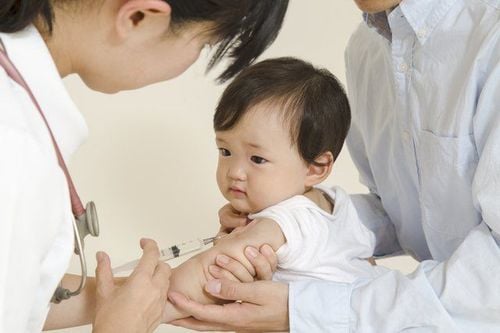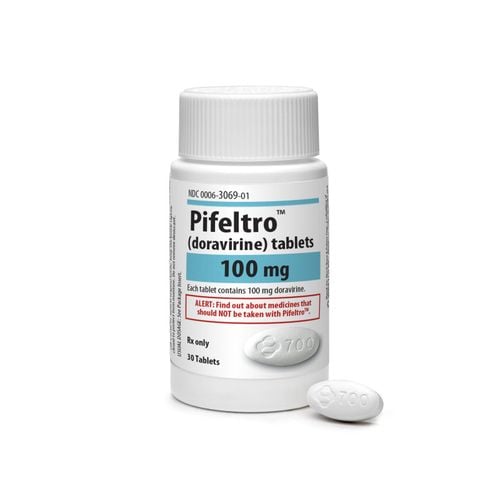This is an automatically translated article.
The article was professionally consulted by Specialist Doctor II Huynh Thi Diem Thuy - Vaccine Consultant - Pediatrics - Neonatology Department, Vinmec Central Park International General Hospital.It's not just children who need to be vaccinated, but adults or anyone at risk should ask for it. Hepatitis A vaccination is mandatory to help you prevent disease, ensure the health and development of the body.
1. What is Hepatitis A?
Hepatitis A (also known as Hepatitis A), is an acute infectious disease of the liver, caused by the Hepatitis A virus HAV.The disease is often transmitted through the digestive tract
Hepatitis A virus hides in feces and can be transmitted through hands when not cleaned properly. This virus is very easily spread in kindergartens and schools.
The virus can also be transmitted through eating and drinking from contaminated food and water sources. It is very long-lived and can survive for months on end on contact surfaces, in raw food and in wastewater.
Common Symptoms
Common symptoms such as fever, nausea, fatigue, vomiting, abdominal pain, dark urine and sometimes jaundice are common signs of HAV infection. According to statistics, only about 15% of people infected with hepatitis A have a relapse within 6 months and a very small number of HAV infections die.
At-risk cases for hepatitis A
Anyone can get hepatitis A. However, some people are more at risk, such as:
Poor living and living environment Lack of clean water Use of drug use Living with or having sex with someone who has the disease, including having sex with men Directly providing care to someone who is sick Traveling or working in areas where hepatitis A is common high rate The disease usually does not have a chronic phase and does not cause permanent damage to the liver. The patient's immune system produces antibodies against the HAV virus, which confer immunity against future infections. These antibodies are best produced with the hepatitis A vaccine.
Hepatitis A has a low risk of developing cirrhosis and liver cancer. However, there are still a small number of cases that progress to malignant form causing death for patients. In the elderly and those with other medical conditions such as liver disease, congestive heart failure, diabetes, and anemia, the recovery time may be longer and the course of the disease may be more severe.

Sốt, buồn nôn, mệt mỏi là triệu chứng dễ bắt gặp của bệnh nhân viêm gan A
2. Do adults need hepatitis A vaccine?
Hepatitis A vaccine is a sterile solution containing the HAV virus that has been isolated and inactivated. When injected into the body, the immune system will recognize and produce antibodies against this virus. Because the virus has now been inactivated, it will be easier and safer to fight them than a highly active virus to directly invade.After having antibodies, our body will recognize and distinguish this virus. If during life, contact, HAV virus enters the body, the cells will be able to recognize and rapidly produce antibodies against the virus. As a result, people who have been vaccinated against hepatitis A will not get the disease. In fact, it's not just children who need to be vaccinated, but adults or anyone at risk should request them.
Hepatitis A vaccine has significantly reduced the number of cases worldwide. In Vietnam, there are no specific statistics. However, for reference, in the United States, the number of people infected with HAV has decreased by 95% since the hepatitis A vaccine was introduced.
Hepatitis A vaccine is recognized as a safe preparation because serious side effects are rare, mild side effects of the drug may go away on its own after a few days or even not occur at all. Possible side effects are: Pain or redness at the injection site, low fever, headache, fatigue...
3. What cases need hepatitis A injection?

Trẻ em độ tuổi từ 1 tuổi trở lên cần tiêm vắc xin viêm gan A
Children aged 1 year (12 months) and older People with a history of chronic liver disease Patients who are prescribed treatment with factors such as blood clotting. People who live in areas where hepatitis A is endemic or plan to travel to countries where the disease is spread Men who have sex with other men People with chronic hepatitis such as hepatitis B or hepatitis C People who have frequent contact with sick animals or work in vaccine labs In any case, you can request an injection any time you suspect a possible HAV infection.
Cases that should not be injected with hepatitis A
People who are allergic to components in the injected vaccine. People are susceptible to reactions to the ingredients in the vaccine. People who are sick or sick should stop injecting, mild cases can still be considered for injection. Pregnant women should consult a doctor. Because: hepatitis A vaccine is contraindicated for pregnant women, cannot guarantee the safety of pregnant women and their babies, but science has not yet verified that this vaccine is harmful to pregnant women.
4. Hepatitis A vaccination schedule for adults
Hepatitis A in adults is recommended to be prevented by following the mandatory vaccination schedule. For adults over 15 years old, doctors usually prescribe a dose of hepatitis A vaccine 160U/1ml. Indications for mandatory 2 injections:First dose: From full 15 years old Repeat dose: 6 to 12 months apart from the first dose
5. Hepatitis A Prevention in Adults

Thường xuyên rửa tay bằng xà phòng
Wash your hands often with soap, especially after using the toilet, before eating and preparing food. Always wash your hands thoroughly with soap and water for at least 20 seconds. Ensure personal hygiene, environmental sanitation, water source. Good handling of feces and waste of patients. Cook food thoroughly, do not eat animals raw or undercooked. Hepatitis A virus will be destroyed at high temperature. Do not share personal utensils (eating utensils, face towels, towels, toothbrushes, buckets, basins...) with sick people. In addition to the methods of preventing hepatitis A in daily life, the safest method to fight the disease is compulsory vaccination. Whether in adults or children, vaccination against hepatitis A helps ensure the health and development of themselves and their families.
The vaccination and consultation room of Vinmec Times City International Hospital is a reliable choice for pregnant women in pregnancy vaccination with the cold chain for optimal vaccine preservation (cold storage, refrigerators). vaccine container has a temperature warning device that exceeds the permissible temperature range...). Customers can check their injection history and injection plan via computer or phone, ensuring that their vaccination schedule is complete, on schedule, safe and effective, without forgetting the vaccination schedule. The team of screening doctors are all highly qualified and can fully advise on safe vaccinations.
Please dial HOTLINE for more information or register for an appointment HERE. Download MyVinmec app to make appointments faster and to manage your bookings easily.













